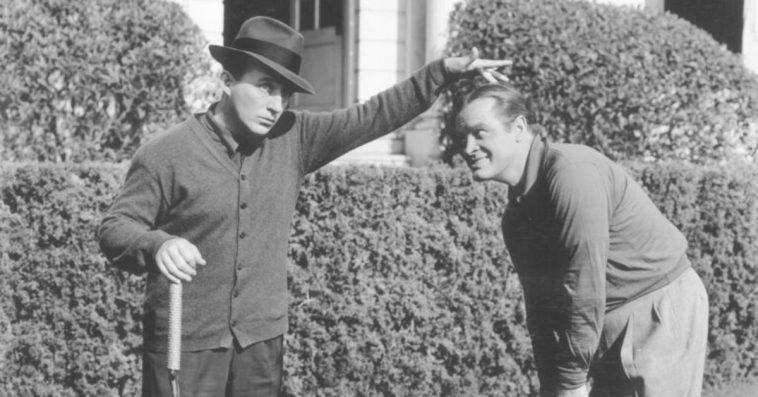Working in vaudeville is where Bob Hope and Bing Crosby first met. They were acquainted by a buddy who knew them both and thought they would match one another on stage.
The friend was right; they appeared to click right away and enjoyed running into each other on the circuit to do short comedic skits known as “cross-overs” (e.g., Two lawyers running into each other… they meet center stage and pick each other’s pockets).
When they were performing on stage together, a producer at Paramount Pictures Corporation in Hollywood recognized that they might be able to bring their on-stage chemistry to the big screen.
Thus, the “road” movies were created, a partnership that would become one of Hollywood’s most lucrative film franchises.
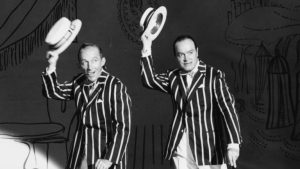
Photo Credits – Respective Owner
“Two months had passed since I had started working as a writer for Bob Hope when the phone in our Burbank apartment rang on the evening of October 14, 1977. Hope answered the phone from the Waldorf-Astoria in New York, where he was been informed that Bing Crosby had passed away from a fatal heart attack while playing golf in Spain.”
“He claimed to be experiencing the worst headache of his life, cancel the show that was scheduled for that evening in New Jersey (Bill Cosby filled in), and fly home immediately. I was asked by him to draft a press release.”
“Since I wouldn’t have much time. It was already late, I slapped on my IBM Selectric (this was B.C., Before Computers) and got to work. I chose to write the homage in the same “setup – payoff – set up – payoff” format as our one-liners, and following this method, I came up with:
“Bing was adored by everyone with a devotion that not only transcended national boundaries but also eliminated them.”
Through his music, he united the globe and communicated with it in a language that everyone could understand: the language of the heart.
“Bing made every Christmas white, no matter where you were in the world. Additionally, it will always appear a little whiter because we had him with us.
Bing was held in high regard by the public, but I doubt he ever truly understood it. Going My Way? Bing posed to the globe, and we all did.
“Yesterday a heart may have stopped and a voice stilled, but the true melody Bing sang will linger on as long as there is a phonograph to be played — and a heart to be lifted,” the author wrote.
“I left the two-page memorial at Hope’s Toluca Lake home with grief as a devoted admirer for my entire life. It was on his secretary’s desk the following morning, with instructions to send it directly to the wire services without any modifications.”
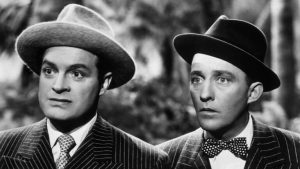
The quotes have been repeated numerous times since they first appeared in newspapers across the nation and in Europe over the course of the following few days. They appear in Bob Thomas’ “The One and Only Bing” as a tribute to Hope.
Bing and Hope were the same age (born twenty-seven days apart in 1903), and although they were not close friends as depicted in the Road pictures—they rarely interacted socially—they had been incredibly successful business partners and had mutual respect. The news of Bing’s death shocked Hope.
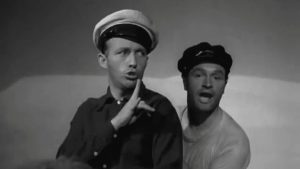
The two men appeared to be very similar when speaking to each other on T.V. They weren’t, in actuality. Bing preferred to work alone and get things done so he could return to the tenth tee, but Hope was outgoing and appreciated his fans.
On a movie set, Hope enjoyed joking with the crew operating the camera and considered many of them to be friends. Bing, on the other hand, had a reputation for sitting alone and doing something lonesome, like reviewing race results to see how his horses had done.
With some of the proceeds from their films, Hope and Bing partnered to purchase a Texas oil well in the middle of the 1940s. A vial of the black gold was still on display in Hope’s Toluca Lake headquarters as it started to pour in shortly after that.
Both Bing and Hope loved baseball, once had shares in the Cleveland Indians baseball team, and shared a love of golf (Bing had a three handicap and Hope an 8). They also frequently gave each other investment advice.
In fact, Hope once recalled that in the early 1940s, when they both presented popular radio shows (Bing’s was dubbed “The Kraft Music Hall”), and the motion pictures were bringing in big bucks, their combined weekly income could exceed $150,000. He admitted, “We couldn’t invest it quickly enough.
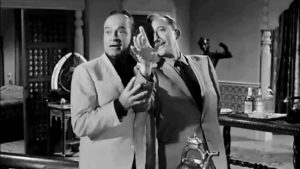
Truth be told, Hope wasn’t quite the “hail-fellow-well-met” he came off as on film, but he was also far from the cold-blooded tycoon that some in the industry saw him as — a description that, on occasion, could have applied to Bing.
The Friars’ Club, a prestigious organization of famous actors and comedians, decided to roast Hope in the early 1940s. Bing, a member of the Friars’ board, was supposed to be there, but he didn’t show up despite being given a place on the dais.
Bing later explained, “I wasn’t hungry” when a reporter questioned him about missing Hope’s roast.

